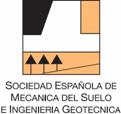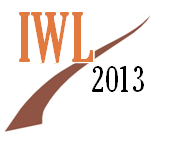
Landslides in hard soils and weak rocks -
an open problem for Mediterranean countries
Seconda Università di Napoli, the Università di Napoli Federico II
and the Universitat Politechnica de Catalunya
People who live on the Mediterranean basin have a common history marked not only by bloody wars and continuous struggles, but also by a (sometimes unconsciously) shared development of science and arts, thus by an incessant growth of common or similar ideas, goals and destiny.
Such an area presents also similar geological contexts and geomorphological hazards whose solution requires huge human and technological resources.
The awareness of such a common history and destiny should be a trigger for closer relationships between neighbouring countries and a continuous, well-aware exchange of ideas. This simple idea, which is not always clear in the minds of people and their leaders, should be the engine of a more firm shared development of common goals and strategies.
Landslides represent a relevant problem for most of the countries located on the Mediterranean basin. Quite recently, the geo-engineering community has paid attention to the special features of hard soils and weak rocks (HSWRs), that are widespread in this area. As a matter of fact, just twenty years ago the Hellenic Society of Soil Mechanics and Foundation Engineering and the French Committee for Soil Mechanics and Foundation Engineering jointly organized, in Athens, an international symposium on "The Geotechnical Engineering of Hard Soils and Soft Rocks" (A. Anastagnopoulos, F. Schlosser, N. Kalteziotis, R. Frank eds.). Five years after (1998), the Italian Geotechnical Society decided to take over the baton, by organizing in Naples the Second International Symposium on "The Geotechnics of Hard Soils and Soft Rocks" (A. Evangelista, L. Picarelli eds.). Finally, in 2011, Greeks organised, again in Athens, the 15th European Conference of Soil Mechanics and Geotechnical Engineering devoted to "The Geotechnics of Hard Soils and Weak Rocks" (A. Anastagnopoulos, M. Pachakis, C. Tsatsanifos eds.).
HSWRs, widespread in this corner of the world, pose complex problems to tunnelling, on the stability of cuttings and natural slopes and in other domains of the geoengineering sciences.
The behaviour of these geomaterials cannot be simply interpreted through the basic laws of Soil Mechanics or of Rock Mechanics, since they lay just between these two wide families of geomaterials, with their distinct features. On the other hand, is just here that emerge most of the problems, and is here that energy and efforts should be directed. Such a goal will be more easily attained if people living on the Mediterranean Sea join their wish and effort. This would make establishing common plans and guidelines and problem-solving more easy.
It is just on this line of intervention that the Seconda Università di Napoli, the Università di Napoli Federico II and the Universitat Politechnica de Catalunya decided to jointly organize a Mediterranean Workshop on Landslides (MWL) that will take place in Napoli next October.
Since HSWRs have to be investigated and modelled only with an original and common effort of the geosciences, the Joint Technical Committee (JTC1) Natural Slopes and Landslides set up by the three geoengineering societies, the ISSMGE, the ISRM and the IAEG, gave its patronage to this important event.
Patronage and Sponsorship











